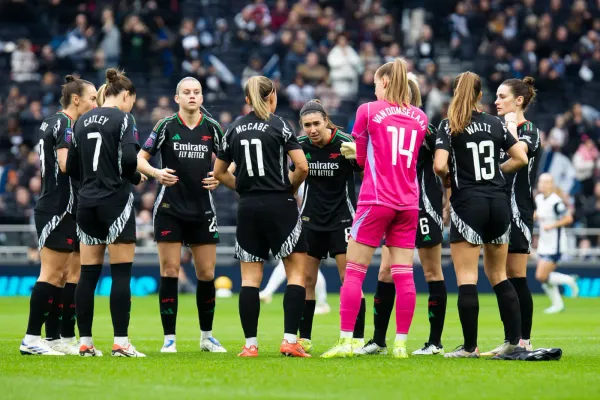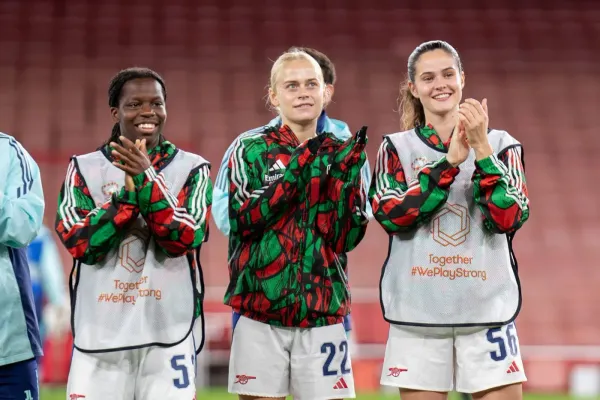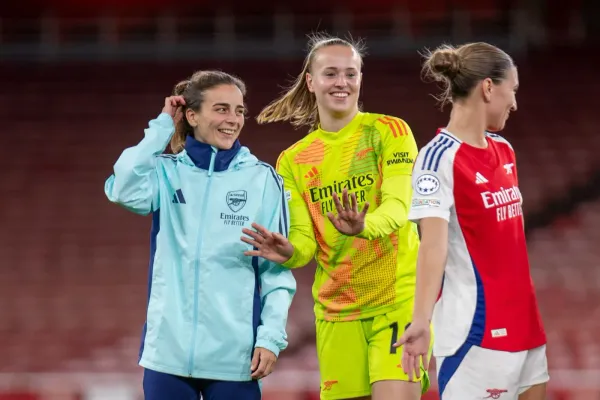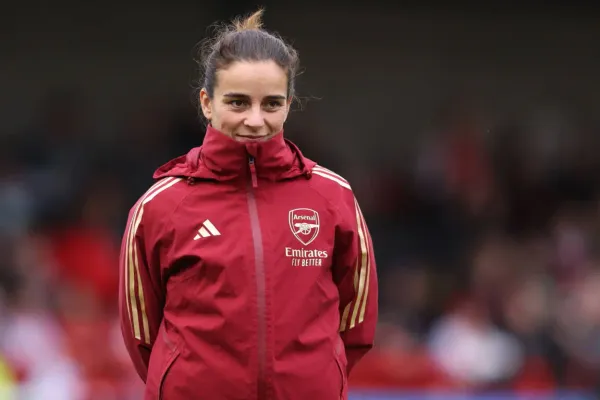Cover Me
Another self-indulgent meta piece about covering Arsenal Women games
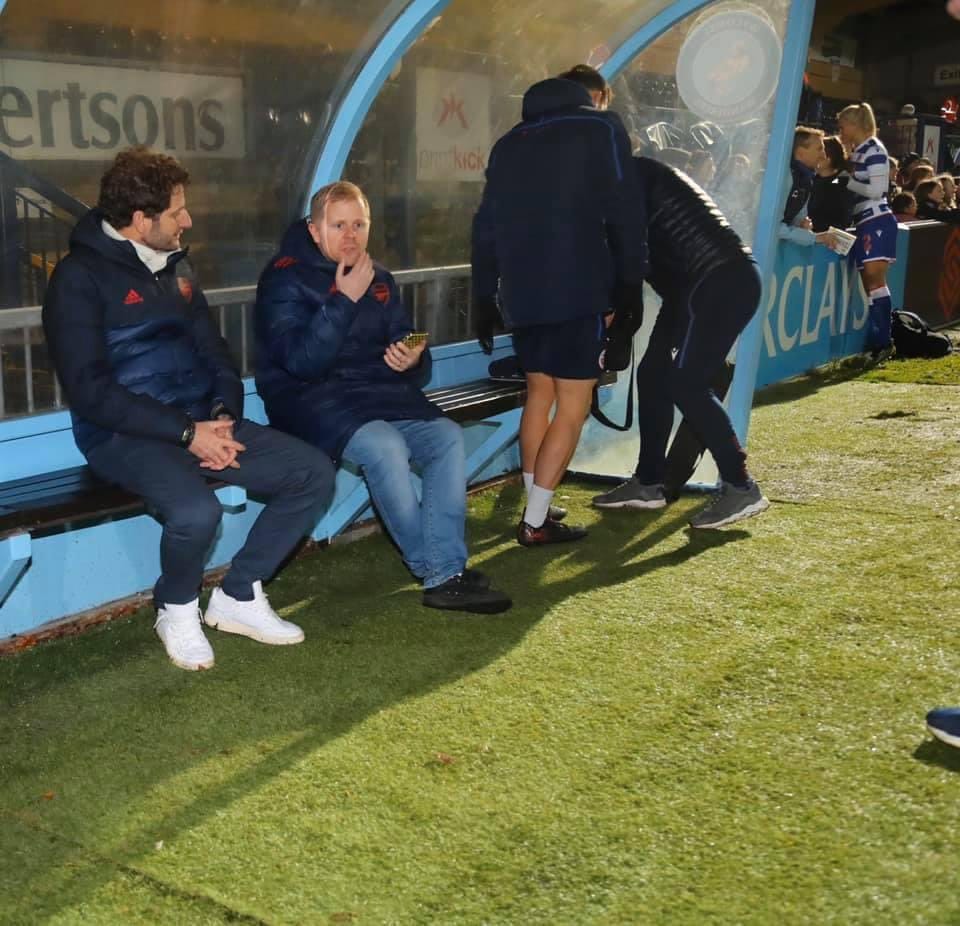
I thought I would write up some of the things I try to do when covering an AWFC game. I will preface this by saying I aspire to be pretty much the opposite of Steven Bartlett in every conceivable way, so please don’t take this as any kind of ‘the rules of’ piece. Almost all of the things I am about to describe are probably not applicable if you are writing a 600 word on the whistle match report and this piece is entirely self-indulgent (my favourite type of piece to write).
I am very fortunate to be in a position to cover one club in detail and, therefore, I have the freedom to write detailed pieces about Arsenal Women’s games. These are just some things I try to observe (and, as ever with these meta pieces, they are things I have done subconsciously and rationalised post-hoc) when covering an AWFC game.
I always try to arrive at the ground around two hours before kickoff. First of all, this gives me the chance to ease myself in a little before the game starts. I am an anxious person who experiences psychological overload easily. I value taking some time before a game to settle into my surroundings a little, even when they are familiar.
But arriving early also allows time to take care of small details. That might be the chance to have a conversation with someone else who is covering the game or working at the game in some capacity which can give you some context you may not have appreciated- especially if they don’t always cover Arsenal. It pays to get out of your bubble a little and get some of those perspectives.
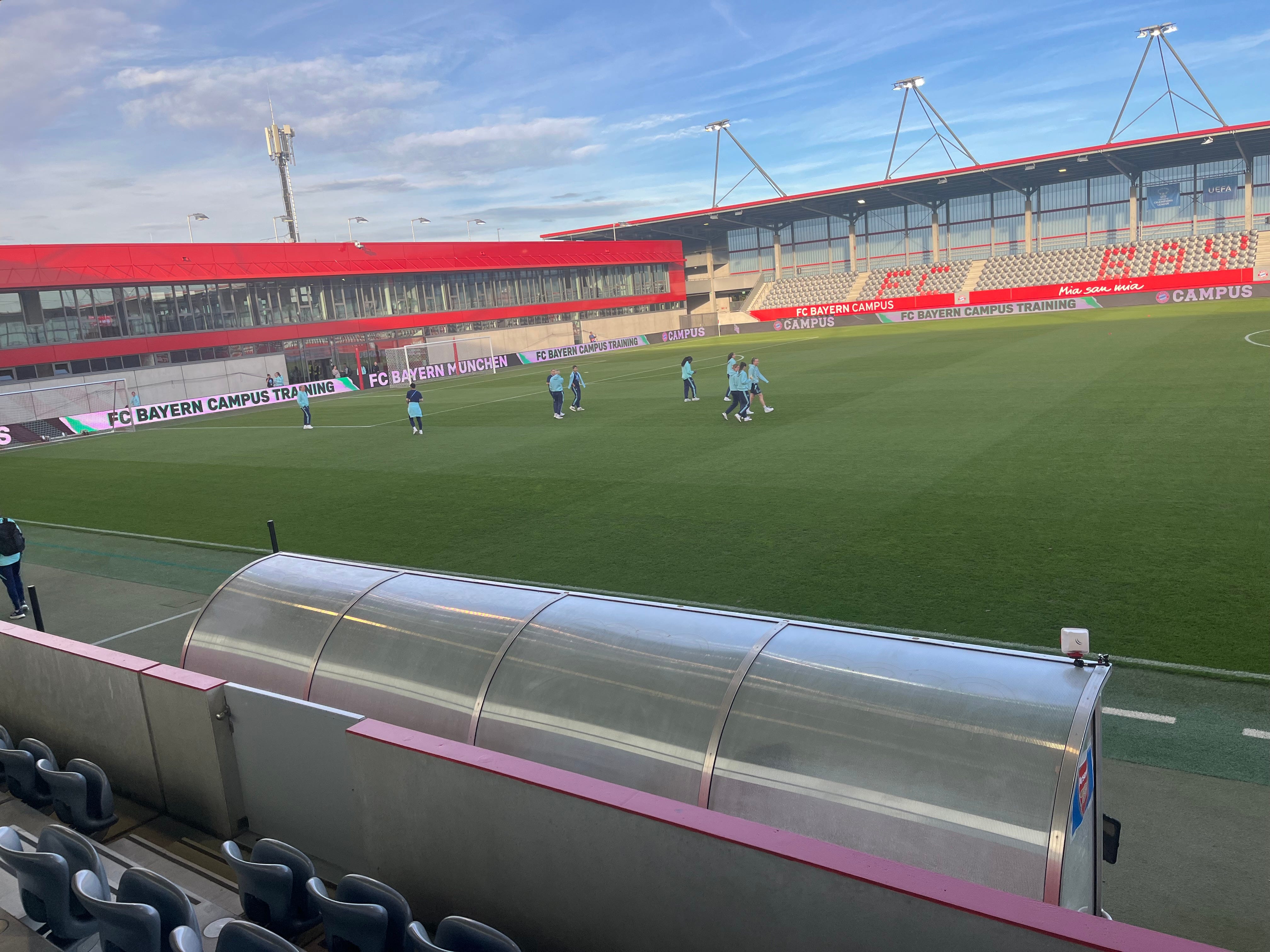
That can go the other way too, sometimes I might have a conversation with someone who is closer to the club and get a bit more of an internal perspective. You can also observe small details, who has arrived with the team? Who hasn’t arrived? A few years ago, I arrived early at a game, noticed Joe Montemurro was not with the team and was able to communicate with the press officer to discern that he was not going to be taking the game that day due to a family issue in Australia.
I hope this doesn’t sound too insensitive to Joe’s situation at that point, but it’s an example of how I was able to discern a crucial piece of news ahead of a game because I was in position to do so. Those conversations and small details rarely lead to breaking news or anything (semi) significant like in this example, but every conversation is valuable in building a picture of the game I am covering, no matter how throwaway. Sometimes you might talk to someone who is closer to Arsenal’s opposition and get a valuable perspective on them too.
The content of these conversations rarely turns up in the reporting because, in isolation, the details are not especially juicy and I am certainly not in the habit of probing people for information with every passing conversation. But the more information and context I have, formal, informal, important, unimportant, all goes into the mental database and helps me to understand the team I am covering from angles I otherwise might not be aware of. It’s not about plundering people for information or betraying confidences, it’s just about building a picture.
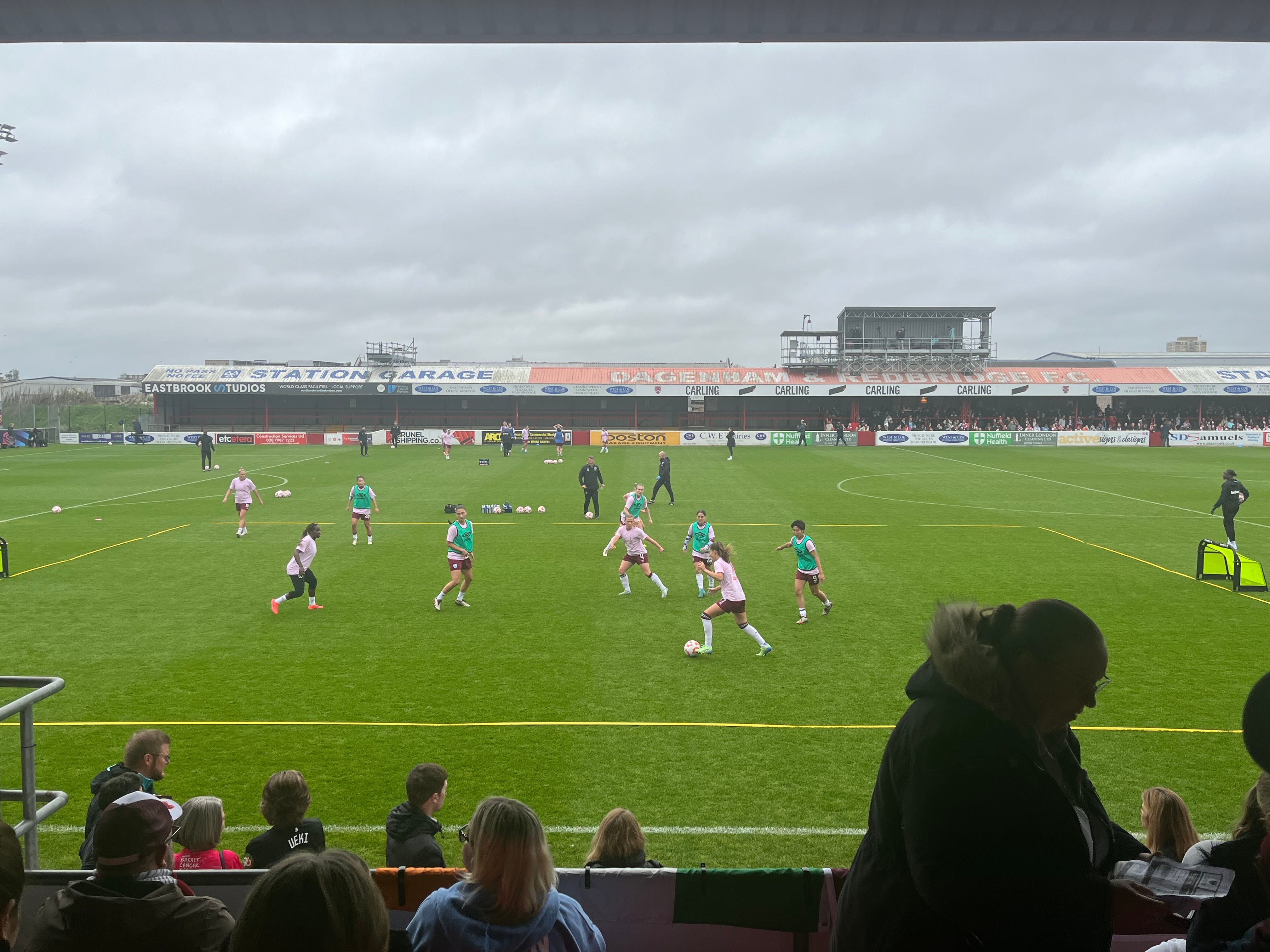
I always try to watch the pre-match warm ups too. By now, I don’t really need to focus too much on the Arsenal warm-up but it might give me a key detail on how the team sets up. Arsenal always execute an attacking drill that involves the full-back and winger combining and sending a cross into the area. From this drill, you might see something you don’t expect in the line-up. For example, maybe the wingers are playing on the opposite flanks to the ones that you expect and the warm up can give you that information in advance.
But I spend time looking at the opposition warm-up too. Again, this can give me an idea of how the other team will line-up (Jonas Eidevall always watched the opponent warm up). But it might also give me an idea of a key principle the opposition will try to apply in the game. When Arsenal played Manchester City recently, I noticed that City were practicing defending balls over the top and with Blackstenius starting upfront, they realised what they might be facing in the game.
You might have noticed that goalkeepers frequently get injured in the WSL only to miraculously recover after a splash of the magic sponge. This is a deliberate tactic (cynics might say) so that coaches can force in-game tactical team talks. I always pay attention to these. Who are the players being spoken to by the coaches? What do I notice in the few minutes after these enforced breaks? Does anything change? What does a player do that they weren’t doing before?
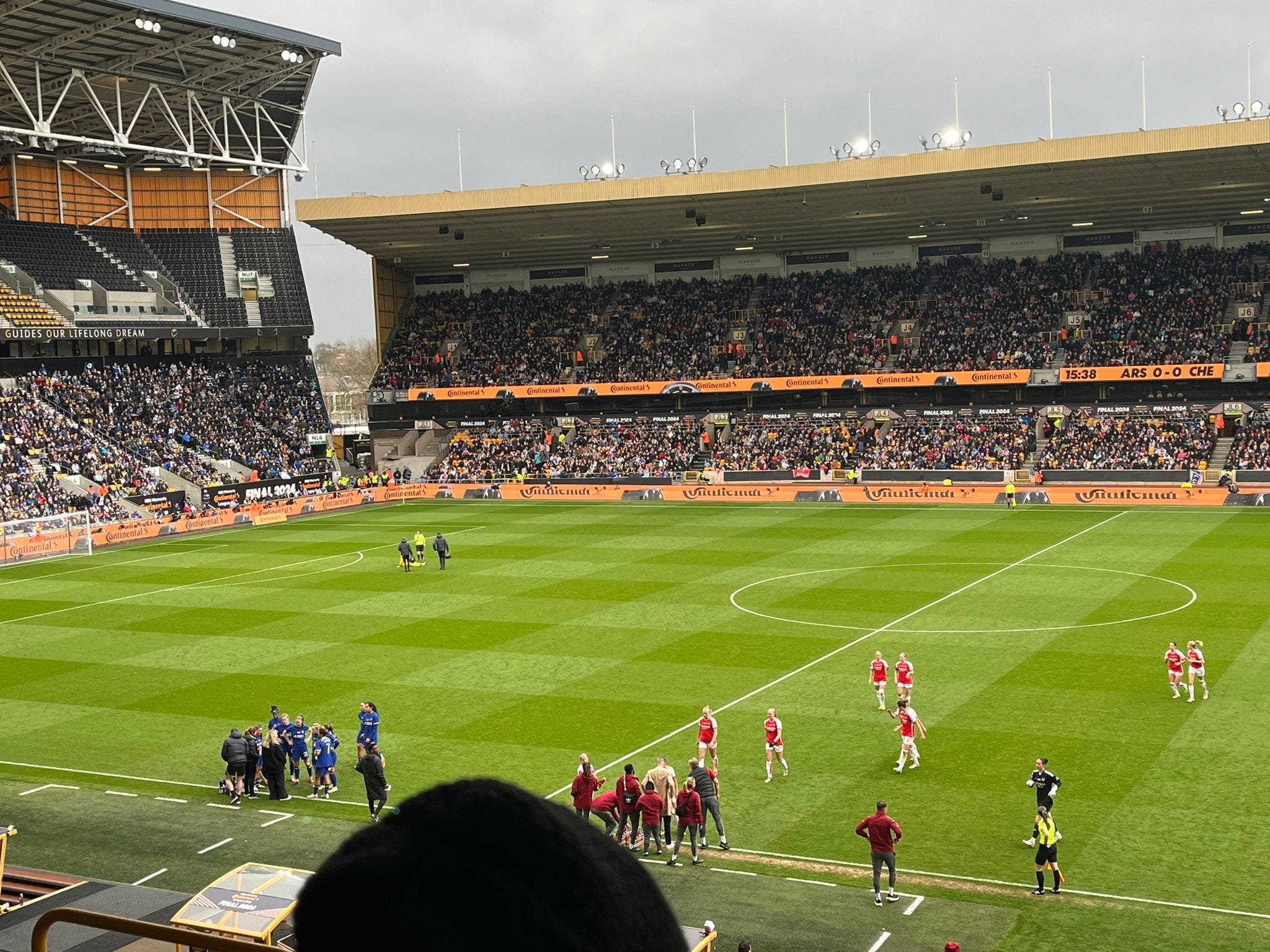
But also, I try not to be too intent on noticing things in these scenarios. Because there might not be anything discernible or worthwhile. Keep an open mind. When we want to see something, sometimes our brains can become over eager and trick us into noticing details that, really, are a bit of an invention in the rush to try to notice something.
When I want to try to observe tactical instruction, the first few minutes of each half are critical. These are the times that are closest in proximity to the team talk so they probably give you the best idea of what players have been asked to do. Games become progressively chaotic as they move further away from this time period (and as game state and fatigue take over) but the first few minutes of each half are usually an excellent indicator for what a coach has asked their team to do.
The first couple of goal kicks are also critical in this respect. When Arsenal have a goal kick, I can get a really good idea of how they have been asked to progress the ball and play through the opponent’s press and, from here, I can observe trends. What always happens? What changes? Teams almost never have one single way of playing out from pressure, they will usually have two or three.
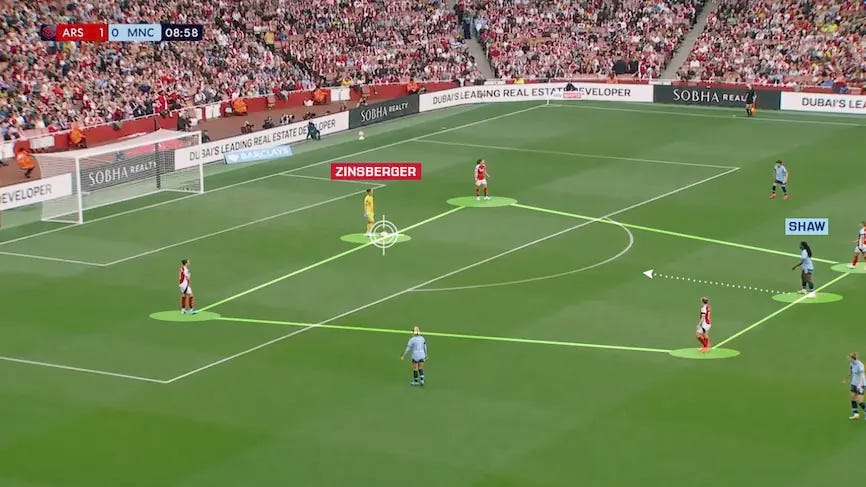
Likewise, from the opponent’s goal kick, I will try to notice Arsenal’s pressing patterns. This is the time when the game is at its least chaotic and you see the coach’s instructions most clearly. For example, during the Conti Cup Final earlier this year, I noticed that Arsenal simply did not mark or press Jess Carter whatsoever in possession from Chelsea’s goal kicks.
So then you ask yourself why? What happens when that player inevitably ends up with the ball? I always have FBRef open during a game so even if I don’t have a reasonable idea of a player, I can see whether there is something in the data that tells me why Arsenal are acting this way with them? These are good, easy levers into understanding how a team has been asked to play and how they have sized up strengths and weaknesses in the opponent.
Women’s football is still in its infancy in terms of data so FBRef is one of the strongest allies I have in covering games. Before Arsenal play someone, I will perform a ‘quick and dirty’ analysis of the opponent, simply by logging onto FBRef’s WSL page, looking at every column and filtering it. Where does the opponent figure against the rest of the league?
What do they do significantly more of than other teams? What do they do less of? Maybe they play the highest number of long passes in the division? Maybe they play more passes in their own penalty area than any other team? Maybe they commit the most fouls by a long distance? It’s not forensic by any means but I can pick up a few very key details looking at quite basic data to get an idea of Arsenal’s opponents. If I can, I try to watch every goal that team has conceded this season to see whether I can identify themes.
The post-match questions for the coach are my bread and butter. I don’t produce on the whistle match reports, instead I write a detailed tactical piece after rewatching the game. Usually at least one of my questions to the manager will be asked with this in mind? What did I notice? What do I want to pin the coach down on? What can I pick up about the game plan?
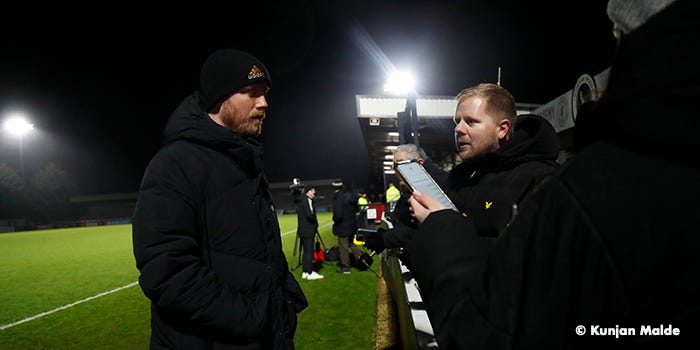
A few seasons ago, in a home game against Everton, I noticed Joe Montemurro talking to Lisa Evans on the sidelines during a break in play. A minute later she set up a goal. I asked Montemurro what he said to her and got a good, detailed answer about Everton’s tactical setup. Coaches are usually happy to talk about their successes!
Away at Aston Villa last season, I noticed that at half-time, with the Gunners a goal down, Eidevall and his staff stayed on the bench looking at match footage in the dugout. They didn’t go into the dressing room for a couple of minutes.
I was able to ask Eidevall why after the game and he explained that he and his staff felt Arsenal were unfortunate to be 1-0 down but they all just wanted to cool down a little and check some key details from the half to make sure their thinking was right before delivering the half time teamtalk. Again, it was a key detail I managed to pick up when the game was dead. (Arsenal eventually won 3-1).
Over the last year or so, I have started to try to ask the opposition coach a question if I can. Their game plan is important, how were they trying to stop Arsenal? Which strengths and weaknesses did they identify? How did Arsenal overcome that or fail to overcome that? Did Arsenal do anything to adjust? Did the opponent do something they don’t usually do?
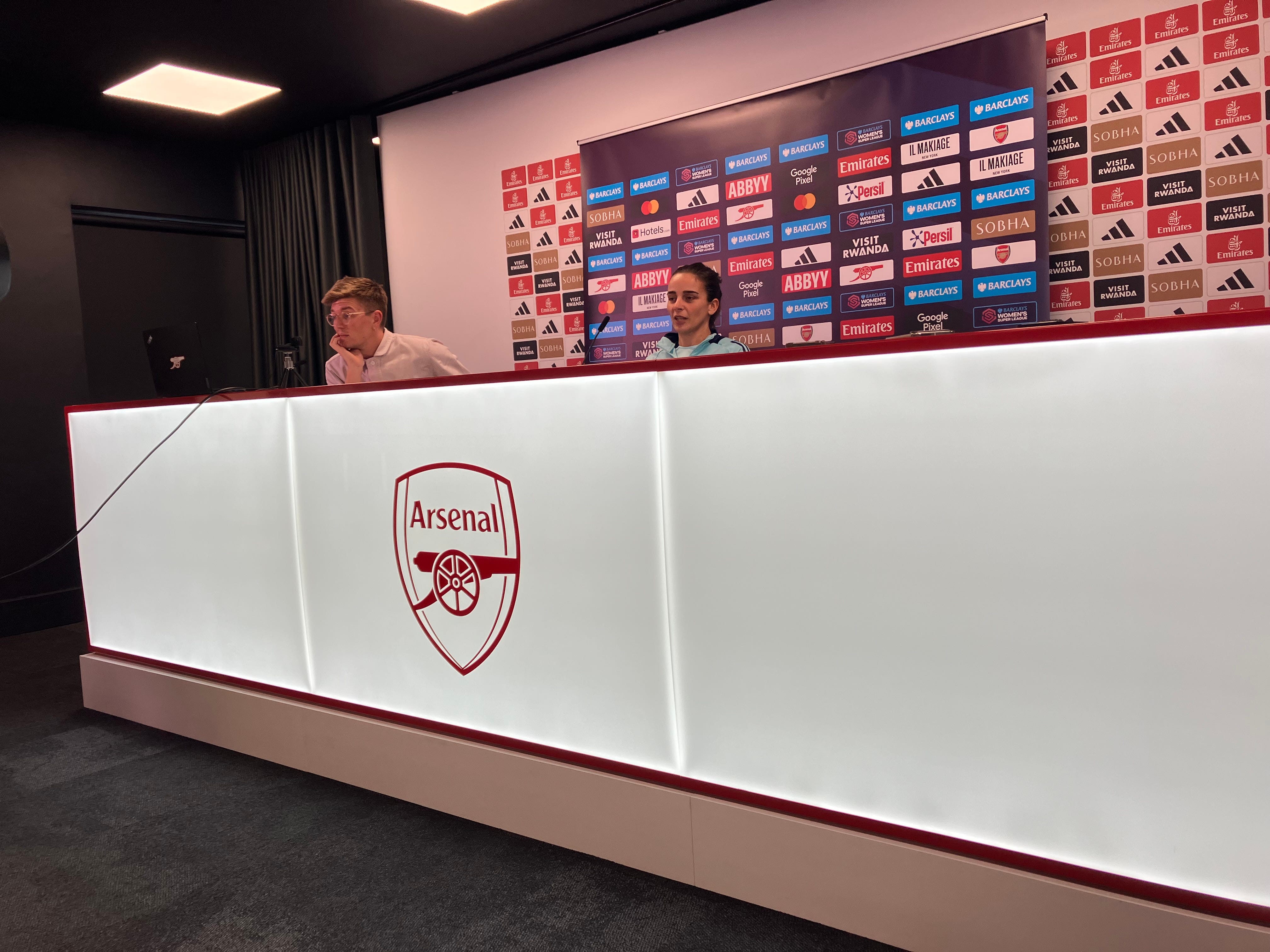
In the WSL, you still usually get very good, detailed answers from managers on this. Another thing I try to remember, when talking to coaches and players, is that they are fresh out of an incredibly intense environment. Players will be physically and mentally incredibly tired. Coaches will still be very mentally stimulated by the game. It pays to show an interest in their job. I find, in a WSL context, coaches respond well when you show you have really thought about their job and what they have tried to do.
I always try to remember that I am talking to elite athletes and professional coaches, they do not think in terms of narratives and headlines. So, for example, it is perfectly fine for a media outlet to frame a big win as ‘Team X makes a statement with big win.’ But coaches and players do not think in terms of my copy or my framing, they don’t think about SEO and headlines. They are not journalists.
They don’t prepare games to ‘make a statement’ or as a message to their critics or to ‘lay down a marker.’ They prepare on a very high technical level to win games. They are not writing my headlines, they are trying to win against other very highly qualified people with very detailed technical and physical information available to them.

I try to respect their angle and their expertise, it is my job to build from that with conclusions and analysis and it is my job to try to tap into that and redirect it to fans in the most digestible way possible.
It is why I try to keep my questions specific and direct (again, this is not applicable to every journalist covering a game, different audiences require different treatments). I want a good response so the onus is on me to ask a good question that gets the coach talking. The questions are a means to an end- a device to get a good answer. The question is the compere not the main attraction.
Jeremy Paxman is considered to be an iconic political journalist and while a big part of a political journalist’s MO is to stop politicians from waffling and steering answers into convenient avenues for their own ends, I have always found Paxman’s style to be more about entertainment than anything.
It’s fun to see a politician you don’t like getting skewered but, ultimately, this style doesn’t really get you answers. The questions are supposed to be the midwife to the answers. (Though I also accept getting a straight answer from a politician is a very different task to talking to a football coach).
But it also pays to be open minded. I have experienced plenty of occasions where I think I have noticed lots of really clever things about a game, I put a slightly (!) smug question to a coach and they reply with some iteration of ‘errr, not really mate.’ Even I get things wrong some time (seriously, I know you don’t believe me, but I do!) Again, this comes into not trying too hard to notice things or to hyper fixate.

